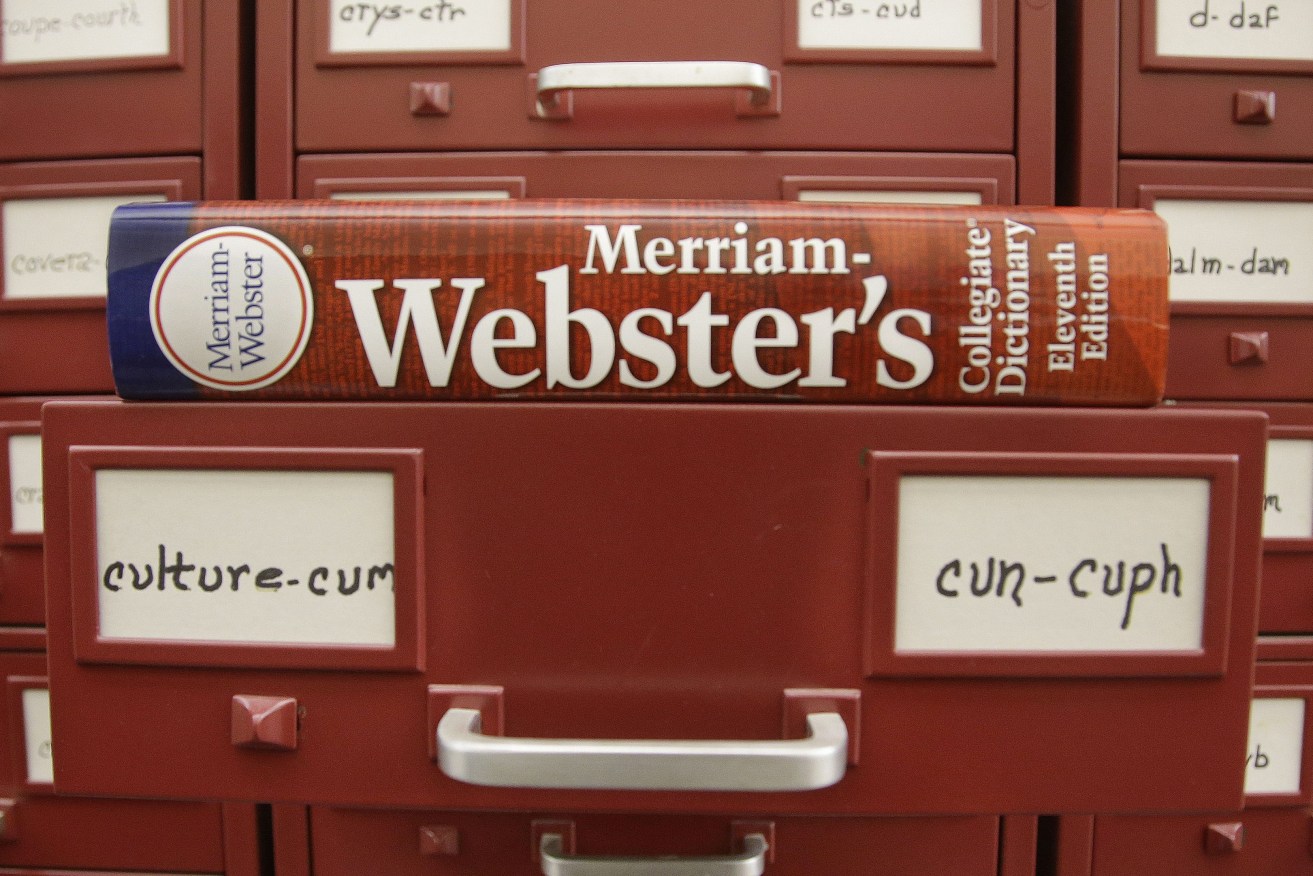In a world of deep fakes and artificial intelligence, it still pays to be authentic
In an age of deepfakes and post-truth, as artificial intelligence rose and Elon Musk turned Twitter into X, the Merriam-Webster word of the year for 2023 is “authentic”.

A Merriam-Webster dictionary sits atop their citation files at the dictionary publisher's offices on Dec. 9, 2014, in Springfield, Mass. Merriam-Webster's word of the year for 2023 is “authentic.” (AP Photo/Stephan Savoia, File)
Authentic cuisine. Authentic voice. Authentic self. Authenticity as artifice. Lookups for the word are routinely heavy on the dictionary company’s site but were boosted to new heights throughout the year, editor at large Peter Sokolowski told The Associated Press in an exclusive interview.
“We see in 2023 a kind of crisis of authenticity,” he said ahead of Monday’s announcement of this year’s word.
“What we realise is that when we question authenticity, we value it even more.”
Sokolowski and his team don’t delve into the reasons people head for dictionaries and websites in search of specific words. Rather, they chase the data on lookup spikes and world events that correlate. This time around, there was no particularly huge boost at any given time but a constancy to the increased interest in “authentic”.
This was the year of artificial intelligence, for sure, but also a moment when ChatGPT-maker OpenAI suffered a leadership crisis. Taylor Swift and Prince Harry chased after authenticity in their words and deeds. Musk himself, at February’s World Government Summit in Dubai, urged the heads of companies, politicians, ministers and other leaders to “speak authentically” on social media by running their own accounts.
“Can we trust whether a student wrote this paper? Can we trust whether a politician made this statement? We don’t always trust what we see anymore,” Sokolowski said.
“We sometimes don’t believe our own eyes or our own ears. We are now recognising that authenticity is a performance itself.”
Merriam-Webster’s entry for “authentic” is busy with meaning.
There is “not false or imitation: real, actual,” as in an authentic cockney accent. There’s “true to one’s own personality, spirit or character:.There’s “worthy of acceptance or belief as conforming to or based on fact”. There is “made or done the same way as an original”. And, perhaps the most telling, there’s “conforming to an original so as to reproduce essential features”.
“Authentic” follows 2022’s choice of “gaslighting”. And 2023 marks Merriam-Webster’s 20th anniversary choosing a top word.
The company’s data crunchers filter out evergreen words like “love” and “affect” vs. “effect” that are always high in lookups among the 500,000 words it defines online.
This year, the wordsmiths also filtered out numerous five-letter words because Wordle and Quordle players clearly use the company’s site in search of them as they play the daily games, Sokolowski said.
Sokolowski, a lexicologist, and his colleagues have a bevy of runners-up for word of the year that also attracted unusual traffic. They include “X” (lookups spiked in July after Musk’s rebranding of Twitter), “EGOT” (there was a boost in February when Viola Davis achieved that rare quadruple-award status with a Grammy) and “Elemental,” the title of a new Pixar film that had lookups jumping in June.
Merriam-Webster said other words that stood out in searches for 2023 included “rizz” – a word driven by internet slang meaning “romantic appeal or charm” as a noun and “to charm or seduce” as a verb; “deepfake” meaning an image or recording that has been altered to misrepresent what someone has said or done; and “coronation” which saw searches rise with the crowning of King Charles III in May.
While Merriam-Webster’s word of 2023 is “authentic,” the Cambridge dictionary chose “hallucinate” – in reference to when AI hallucinates and produces false information. And the Collins dictionary picked “AI” – the abbreviation for artificial intelligence.












